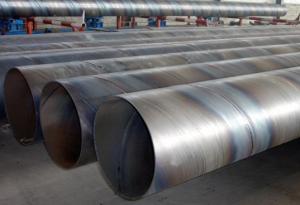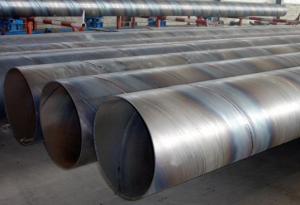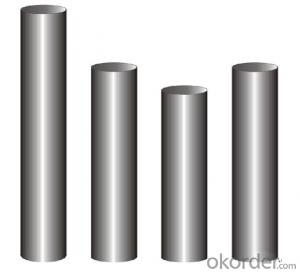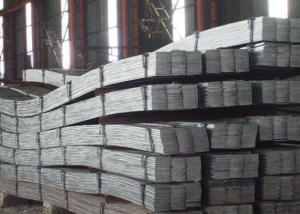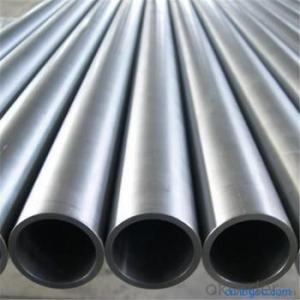High Quanlity Stainless Steel Welded Pipe
- Loading Port:
- Tianjin
- Payment Terms:
- TT or LC
- Min Order Qty:
- 25 m.t.
- Supply Capability:
- 10000 m.t./month
OKorder Service Pledge
OKorder Financial Service
You Might Also Like
1、Structure of Welded Steel Tube:
We are company that have many years experience and professional manager team and engineer team and sales team, sure we will provide you high quality of pipe and professioanl service.Welded Steel Tube is formed by drawing a solid billet over a piercing rod to create the hollow shell. We are company that have many years experience and professional manager team and engineer team and sales team, sure we will provide you high quality of welded pipe and professioanl service.
2、Main Features of the Welded Steel Tube:
• High manufacturing accuracy
• The higher strength
• The small inertia resistance
• Strong heat dissipation ability
• Good visual effect
• Satisfy price
3、Welded Steel Tube Specification:
Standard | GB, DIN, ASTM ASTM A106-2006, ASTM A53-2007 |
Grade | 10#-45#, 16Mn 10#, 20#, 45#, 16Mn |
Thickness | 8 - 33 mm |
Section Shape | Round |
Outer Diameter | 133 - 219 mm |
Place of Origin | Shandong, China (Mainland) |
Secondary Or Not | Non-secondary |
Application | Hydraulic Pipe |
Technique | Cold Drawn |
Certification | API |
Surface Treatment | factory state or painted black |
Special Pipe | API Pipe |
Alloy Or Not | Non-alloy |
Length | 5-12M |
Outer Diameter | 21.3-610mm |
Grade | 20#, 45#, Q345, API J55, API K55, API L80, API N80, API P110, A53B |
Standard | ASME, ASTM |
1) Material:20#(ASTM A 106/A53 GRB.API5LGRB,GB),45#,16Mn,10#.
2) Specification range:OD:21.3-610mm,WT:6-70mm,length:6-12m or according to the requirement of clients.
3) Excutive standards:GB,ASME API5L.ASTM A 106/A53,Despite of the above standards,we can also supply seamless steel pipe with standard of DIN,JIS,and so on,and also develop new products according to the requirements of our clients!
4) Surface:black lacquered,varnish coating or galvanized.
5) Ends:Beveled or square cut,plastic capped,painted.
6) Packing:bundles wrapped with strong steel strip,seaworthy packing.
4、Packaging & Delivery
Packaging Details: | seaworthy package,bundles wrapped with strong steel strip |
Delivery Detail: | 15-30days after received 30%TT |
5、FAQ of Welded Steel Tube:
①How is the quality of your products?
Our products are strictly in accordance with international and domestic standard. We test on every pipe before delivery. Any quality certification or testing report you want to see, please tell us.
Guaranteed: If products’ quality is not in accordance with description as we provide or the promise before you place order, we promise 100% refund.
②How about the price?
Yes, we are factory and be capable of offering you the lowest price. One of our policy is that “ to save time and be absolutely honest with our business relationship, we quote as low as possible for every client, and discount can be given according to the quantity”, if you are interested in bargain and dissatisfy our factory price, just don’t waste your time. Our quotation is professional.
③Why should you choose us?
Choice happens because of our quality and price. Additionally, we can also offer professional products inquiry, products knowledge train (for agents), fast goods delivery, outstanding customer solution proposals. Our service formula: good quality + good price + good service=customer’s trust.
SGS test is available. Customer inspection before shipping is welcome. Third party inspection is OK.
6、 Welded Steel Tube Images:
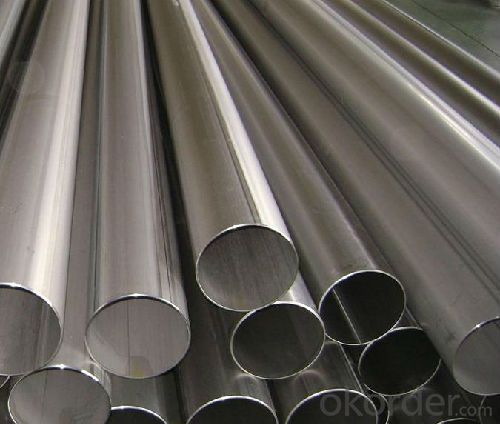
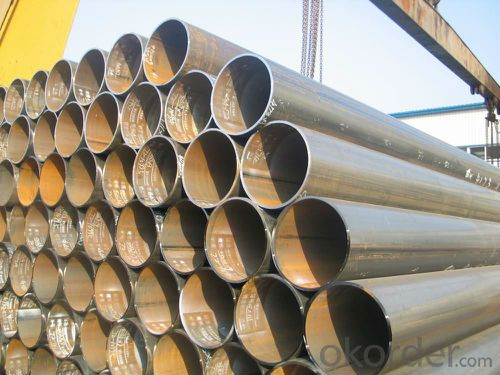
- Q:Can stainless steel pipes be used for pharmaceutical manufacturing?
- Yes, stainless steel pipes can be used for pharmaceutical manufacturing. Stainless steel is a commonly used material in the pharmaceutical industry due to its excellent corrosion resistance, high strength, and ease of sterilization. It is suitable for transporting various pharmaceutical fluids and gases while ensuring cleanliness, safety, and compliance with industry regulations.
- Q:Can stainless steel pipes be used for semiconductor manufacturing?
- Yes, stainless steel pipes can be used for semiconductor manufacturing. Stainless steel is often chosen for its excellent corrosion resistance, high temperature resistance, and mechanical strength. These properties make stainless steel pipes suitable for various applications in the semiconductor industry, such as gas and chemical delivery systems, vacuum systems, and high-purity water distribution. Semiconductor manufacturing processes require the transportation of various gases, chemicals, and liquids, and stainless steel pipes can provide the necessary reliability and purity. The corrosion resistance of stainless steel ensures that the pipes will not contaminate the semiconductor materials or the manufacturing process. Additionally, stainless steel pipes can withstand the high temperatures involved in semiconductor manufacturing without compromising their structural integrity. Moreover, stainless steel pipes can be fabricated to meet the stringent cleanliness requirements of the semiconductor industry. They can be electropolished or passivated to remove surface impurities and contaminants, further enhancing their suitability for use in semiconductor manufacturing. Overall, stainless steel pipes offer a durable, corrosion-resistant, and high-purity solution for semiconductor manufacturing applications, making them a popular choice in the industry.
- Q:What is the typical wall thickness for stainless steel pipes?
- Depending on the application and specific requirements, the wall thickness of stainless steel pipes can vary. Generally, there is a wide range of wall thickness options available for stainless steel pipes. For typical applications like plumbing or industrial use, the wall thickness can range from Schedule 5S (0.049 inches or 1.24 mm) to Schedule 80S (0.218 inches or 5.54 mm). It's worth mentioning that for specialized applications or projects with specific requirements, the wall thickness can be customized accordingly. In summary, factors such as the intended use, pressure requirements, and structural considerations should be taken into account when selecting the appropriate wall thickness for stainless steel pipes.
- Q:Can stainless steel pipes be used in the agriculture industry?
- Yes, stainless steel pipes can be used in the agriculture industry. Stainless steel pipes are highly resistant to corrosion, making them ideal for agricultural applications where exposure to moisture, chemicals, and other corrosive substances is common. They are commonly used for irrigation systems, water supply lines, and various agricultural processes that require durable and long-lasting piping solutions. Additionally, stainless steel pipes are hygienic, easy to clean, and can withstand high temperatures, making them suitable for agricultural processes that involve food production and processing.
- Q:What is the difference between seamless and HFW stainless steel pipes?
- Seamless stainless steel pipes are made by piercing a solid billet of stainless steel and then rolling it into a pipe shape without any welding or joints. This seamless manufacturing process results in a smooth and continuous pipe with uniform thickness throughout. On the other hand, HFW (High-Frequency Welding) stainless steel pipes are created by forming a flat strip of stainless steel into a pipe shape and then welding the edges using high-frequency electric currents. This welding process produces a strong and durable joint, but there may be a noticeable weld bead or seam along the length of the pipe. In summary, the main difference between seamless and HFW stainless steel pipes lies in their manufacturing processes. Seamless pipes have no welds or joints, offering a smooth appearance and enhanced corrosion resistance. HFW pipes, although having welded seams, provide a cost-effective option with reliable strength and durability. Ultimately, the choice between these two types of pipes depends on specific application requirements and budget considerations.
- Q:What are the different surface finishes available for stainless steel pipes?
- Some common surface finishes available for stainless steel pipes include mill finish, brushed finish, mirror finish, satin finish, and bead blasted finish. Each finish has its own unique appearance and texture, catering to different aesthetic preferences and functional requirements.
- Q:What is the difference between Schedule 10 and Schedule 40 stainless steel pipes?
- Schedule 10 and Schedule 40 stainless steel pipes differ primarily in their wall thicknesses and pressure ratings. Schedule 10 pipes possess thinner walls when compared to Schedule 40 pipes. Consequently, Schedule 10 pipes are ideal for applications with lower pressure ratings and are commonly employed for lighter-duty tasks. Conversely, Schedule 40 pipes boast thicker walls, rendering them suitable for applications necessitating higher pressure ratings, frequently utilized in heavy-duty or industrial settings. The selection between Schedule 10 and Schedule 40 stainless steel pipes depends upon the particular requirements of the application, encompassing pressure, temperature, and material compatibility.
- Q:Are stainless steel pipes suitable for brewing systems?
- Yes, stainless steel pipes are highly suitable for brewing systems. Stainless steel is corrosion-resistant, non-reactive, and easy to clean, making it an ideal material for handling various brewing processes, including transporting water, wort, and beer. It helps maintain the purity and quality of the brew, ensuring there are no off-flavors or contaminants introduced during the process. Additionally, stainless steel pipes are durable and can withstand high temperatures and pressure, making them a reliable choice for brewing systems.
- Q:Can stainless steel pipes be heat treated?
- Yes, stainless steel pipes can be heat treated. Heat treatment processes such as annealing, solution annealing, and stress relieving can be applied to stainless steel pipes to improve their mechanical properties, such as strength, hardness, and corrosion resistance.
1. Manufacturer Overview |
|
|---|---|
| Location | |
| Year Established | |
| Annual Output Value | |
| Main Markets | |
| Company Certifications | |
2. Manufacturer Certificates |
|
|---|---|
| a) Certification Name | |
| Range | |
| Reference | |
| Validity Period | |
3. Manufacturer Capability |
|
|---|---|
| a)Trade Capacity | |
| Nearest Port | |
| Export Percentage | |
| No.of Employees in Trade Department | |
| Language Spoken: | |
| b)Factory Information | |
| Factory Size: | |
| No. of Production Lines | |
| Contract Manufacturing | |
| Product Price Range | |
Send your message to us
High Quanlity Stainless Steel Welded Pipe
- Loading Port:
- Tianjin
- Payment Terms:
- TT or LC
- Min Order Qty:
- 25 m.t.
- Supply Capability:
- 10000 m.t./month
OKorder Service Pledge
OKorder Financial Service
Similar products
New products
Hot products
Related keywords
